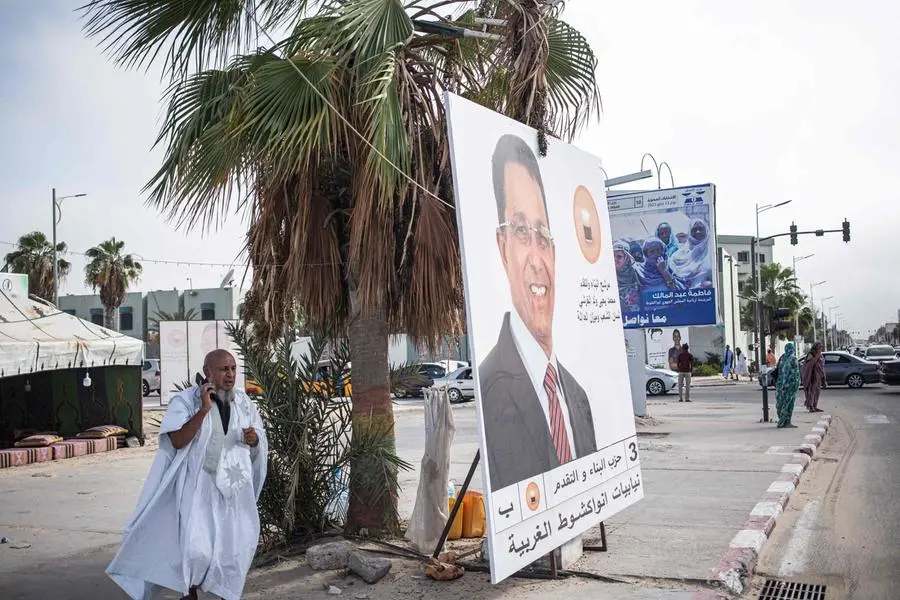PHOTO
Voters in the West African nation of Mauritania began casting ballots Saturday in the first legislative and local elections since President Mohamed Ould Ghazouani came to power in 2019.
Ghazouani, who has overseen Mauritania's relative stability in the violence-wracked Sahel, is widely expected to seek re-election next year, though he has not confirmed his plans.
His El Insaf party is heavily favoured to win among the 25 parties vying for the backing of around 1.8 million voters, who are set to choose 176 members of parliament as well as 15 regional councils and 238 municipal councils.
"Everything is ready, the ballot boxes are locked. Let the first voters in," said Abdelkader Berrar, chief of a voting station at a stadium in the capital Nouakchott, an AFP journalist saw as waiting lines began to form outside.
"I'm coming because of a sense of duty, obviously," said Mohamed Ould Cheikh, a 30-year-old mining agent.
"Our duty is to contribute to the development of democracy. Peace and development depend upon it," he said.
Ghazouani's party is the only one to field candidates in all constituencies, which is likely to give him a boost in particular with rural voters in the vast, arid country.
El Insaf's leading challengers are the Islamist movement Tewassoul, the main opposition party in the outgoing parliament, and the Arab nationalist Sawab.
Campaigning has been in full swing since April 27, with main parties setting up large tents in the capital Nouakchott.
El-Khadir Lamine, an 18-year-old student voting for the first time, said he was hoping for "new opportunities for young people".
For the first time, voters can choose a list for candidates younger than 35, for whom 11 seats will be automatically attributed in the National Assembly.
Results from the first round of voting are expected within 48 hours of poll closings. A second round is scheduled for May 27 for half of the 176 National Assembly seats.
- Cost-of-living concerns -
Ghazouani, 66, is a general considered one of the main architects of Mauritania's success against jihadism, in his former role as army chief.
The country's population is divided between Arab-Berber Moors, Afro-Mauritanian descendants of slaves, and other groups of sub-Saharan African origin.
Ghazouani made the fight against poverty one of his priorities, carrying out an ambitious social programme that has included distributing food and money to the poorest.
But the economy has slowed since the Covid-19 pandemic, and rising inflation due to the war in Ukraine has put cost-of-living concerns for the forefront.
El Insaf had a comfortable majority in the previous parliament, and analysts have predicted little threat from rival parties.
The Tewassoul Islamists are seeking a strict application of Islamic law, and are again expected to be the main opposition group in parliament.
Sawab is allied with the anti-slavery activist Biram Dah Abeid, the runner-up in the last presidential election, who has long advocated for the descendants of slaves, a community to which he belongs.




















